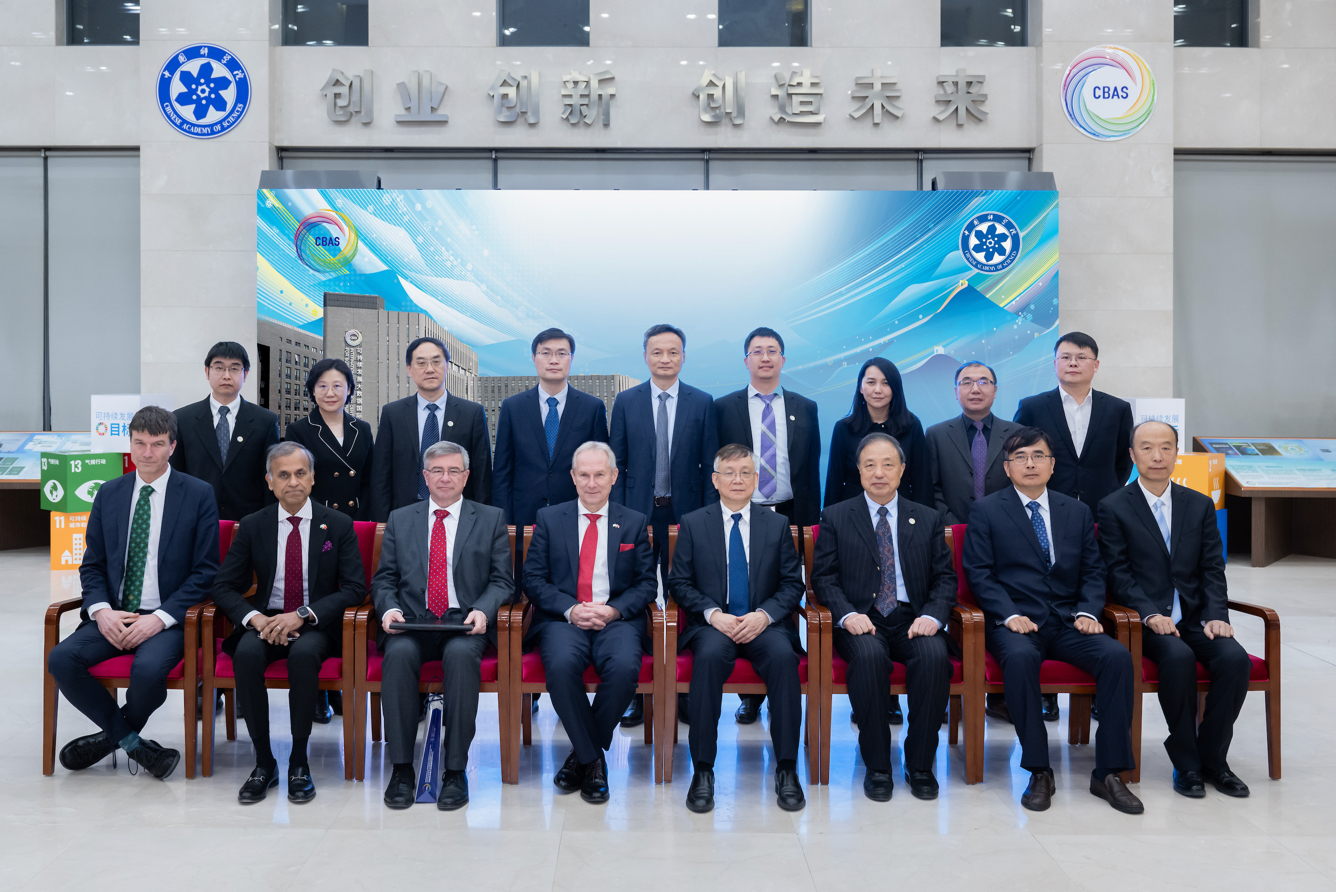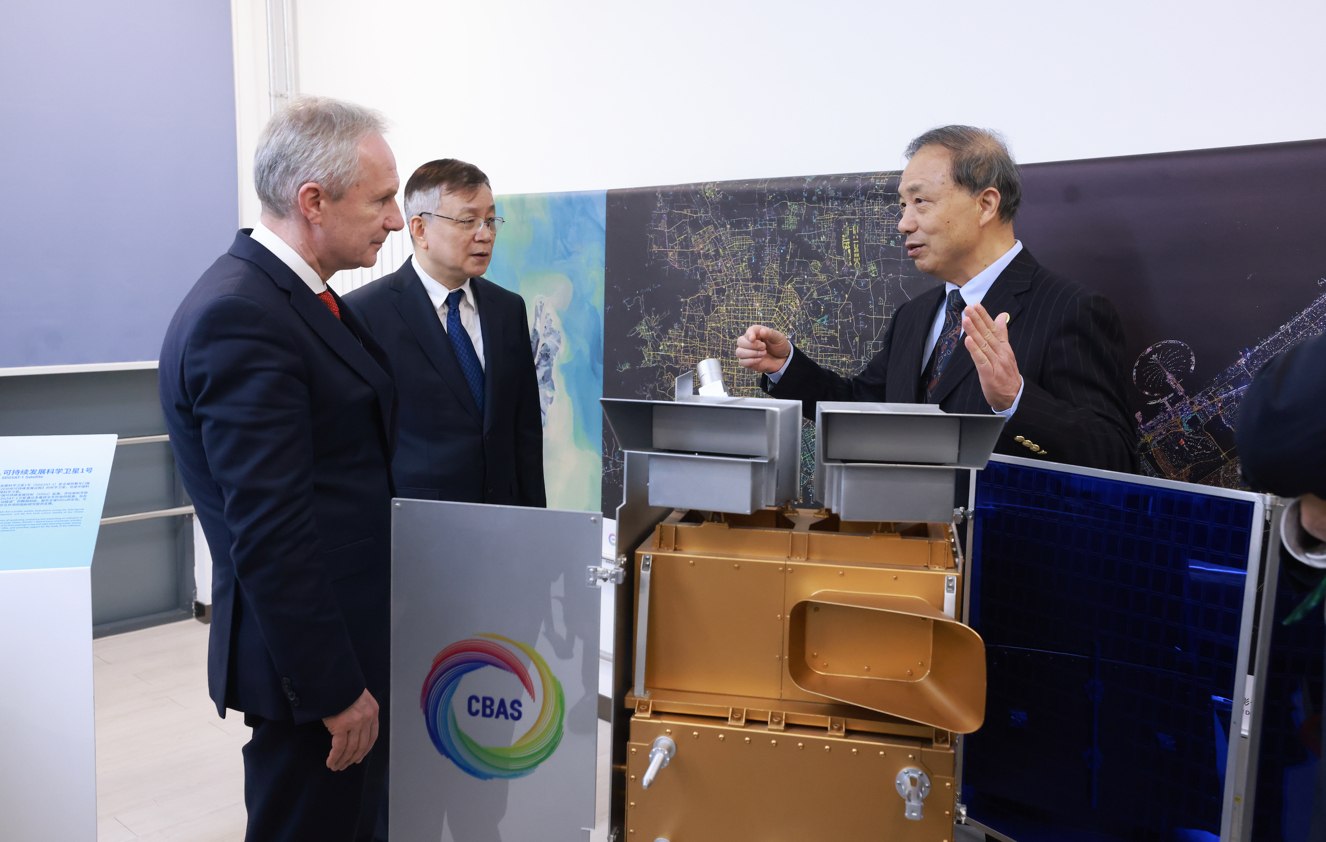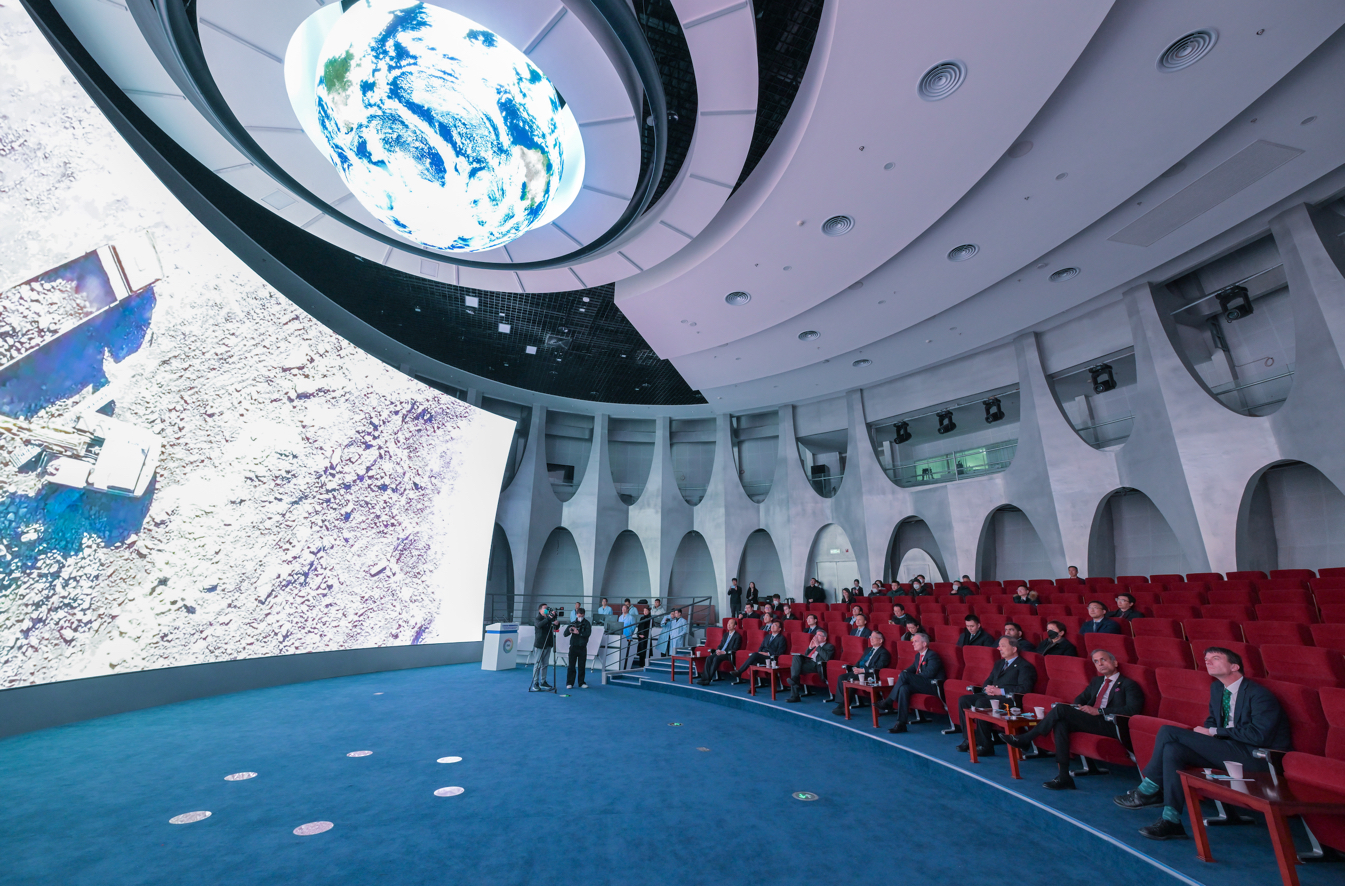
"The UN 2030 Agenda is a blueprint for peace and prosperity for people and the planet, and solutions based on big data and innovation offered by the Center provide a pathway to implement the Agenda."
Mr. Csaba Kőrösi, president of the 77th session of the UN General Assembly made the remarks when visiting the International Research Center of Big Data for Sustainable Development Goals (CBAS) in Beijing on February 2, 2023 during his four-day tour to China. The Center was founded in 2021 and hosted by the Chinese Academy of Sciences (CAS) to monitor scientific indicators for sustainable development goals (SDGs).
The delegation visited the Center's big data platform, big data collaborative analysis system, science satellite system, big data viualization and application as well as data sharing system, which are developed by the Center in support of the realization of sustainable development goals (SDGs) which are described by the UN 2030 Agenda for Sustainable Development.
In 2015, the UN adopted the 2030 Agenda, which includes 17 sustainable development goals, ranging from ending poverty to tackling climate change. However, a lack of timely and quality data has impeded the evaluation and progress of the 2030 Agenda. These limitations prevent less-developed countries from making informed, scientific decisions to pursue these objectives.
Sustainable development is high on the agenda of Kőrösi's visit. He met with leading scientists and administrators from the Center and CAS, and exchanged views on hot issues concerning the achievement of the SDGs, such as development of cutting-edge digital technologies, clean water and sanitation, affordable and clean energy, sustainable cities and communities, climate action, life on land, as well as the Center's capacity to provide services for the 2030 Agenda and the potential for cooperation between CAS and UN agencies.
"CAS pays sustained attention to the biodiversity conservation, global climate change, disaster prevention and mitigation, water security and other major global concerns," said CAS President HOU Jianguo in his welcoming speech.
The Academy has launched major programs, and has achieved significant research results in the fields of ecological protection, carbon neutrality, and big data, he said.
"With all these achievements, it has provided important S&T support for the implementation of the Agenda and the promotion of China-proposed Global Development Initiative", said HOU.
CAS is willing to strengthen cooperation with UN agencies to further advance the 2030 Agenda and to make greater contributions to the building of a community with a shared future for mankind, according to HOU.
Mr. Kőrösi said that he was deeply impressed and inspired by what had been shown in the monitoring and evaluation of the SDGs.
How the research being done by CAS to support implementation of the SDGs is a "model" for other countries of the world, he said.
"Our future will not have a sustainable transformation without the digital technologies and nature-based solutions supported here," said Mr. Kőrösi.
He called for CBAS' further involvement in the mid-term evaluation of the SDGs and to continue to provide comprehensive science data to assist decision-making and policy implementation.
GUO Huadong, Director-general of CBAS, said that the Center will stick to the principles of "data sharing for common benefits" and "action through science", and strengthen its research in the correlation and connectivity among different indicators at a global scale to unleash the power of digital technology to build a new pattern of digital cooperation.

HOU Jianguo meets with Mr. Kőrösi at the International Research Center of Big Data for Sustainable Development Goals. (Image by CAS)

Prof. GUO Huadong introduces the science satellite developed by the Center. (Image by CAS)

Mr. Kőrösi visits the big data collaborative analysis system. (Image by CAS)

86-10-68597521 (day)
86-10-68597289 (night)

86-10-68511095 (day)
86-10-68512458 (night)

cas_en@cas.cn

52 Sanlihe Rd., Xicheng District,
Beijing, China (100864)

